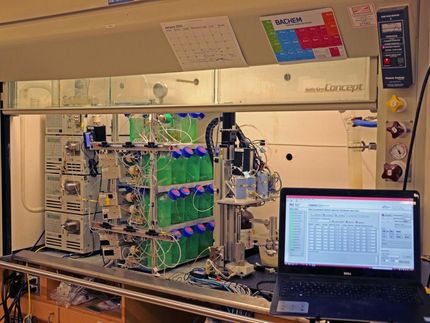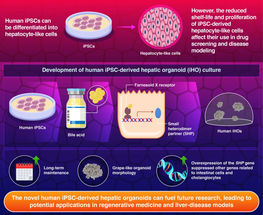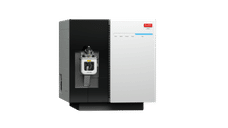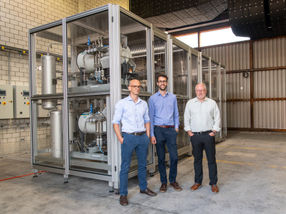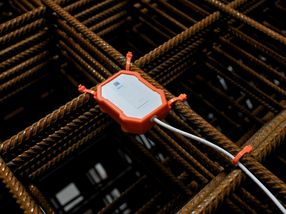Agilent teams with Battelle Memorial Institute to develop artificial neural network technology for protein research with LC/MS
Agilent Technologies Inc. announced a Cooperative Research and Development Agreement (CRADA) with Battelle Memorial Institute, the operating and management contractor for the Department of Energy's (DOE) Pacific Northwest National Laboratory (PNNL) located in Richland, Wash.
The objective of the agreement is to further development of an artificial neural network technology for protein identification that was developed at PNNL, and adapt it to Agilent liquid chromatograph/mass spectrometer (LC/MS) systems. The work is expected to ultimately provide protein researchers with a method of protein identification that increases statistical confidence.
Protein identification is frequently accomplished by chemically digesting (fragmenting) proteins and then using LC/MS technology to separate and analyze the resulting peptide fragments. The PNNL-developed breakthrough technology uses artificial neural networks to predict how long it takes individual peptides to emerge, or elute, from the liquid chromatograph. This predictive power greatly increases confidence in the LC/MS identification of the peptides and original proteins. Tests conducted in the William R. Wiley Environmental Molecular Sciences Laboratory, a DOE scientific user facility located at PNNL, have shown the predicted retention times match actual retention times to within approximately 3 percent.
The CRADA provides for the further development and demonstration of the PNNL-developed technology on LC/MS systems, supplied to PNNL by Agilent. PNNL plans to use funding provided by the DOE's Office of Science, Life Sciences Division to demonstrate the peptide retention time capability on Agilent's instruments. Under the CRADA, Agilent has the option to negotiate an exclusive license for the patent-pending, Battelle-owned background intellectual property, and any inventions that may arise under the CRADA.
"PNNL's elution prediction model is well-matched to the outstanding stability of the Agilent 1100 Series LC," said Dr. John Michnowicz, LC/MS marketing manager for Agilent Technologies. "We look forward to the chance to make this promising technology available to proteomics researchers."
Pacific Northwest National Laboratory is a Department of Energy Office of Science research facility that advances the fundamental understanding of complex systems, and provides science-based solutions to some of the nation's most pressing challenges in national security, energy and environmental quality. The laboratory employs more than 3,800 scientists, engineers, technicians and support staff, and has an annual budget of nearly $600 million. Battelle, based in Columbus, Ohio, has operated PNNL for the federal government since the Lab's inception in 1965.
Other news from the department science
These products might interest you
Most read news
More news from our other portals
See the theme worlds for related content
Topic World Mass Spectrometry
Mass spectrometry enables us to detect and identify molecules and reveal their structure. Whether in chemistry, biochemistry or forensics - mass spectrometry opens up unexpected insights into the composition of our world. Immerse yourself in the fascinating world of mass spectrometry!

Topic World Mass Spectrometry
Mass spectrometry enables us to detect and identify molecules and reveal their structure. Whether in chemistry, biochemistry or forensics - mass spectrometry opens up unexpected insights into the composition of our world. Immerse yourself in the fascinating world of mass spectrometry!
